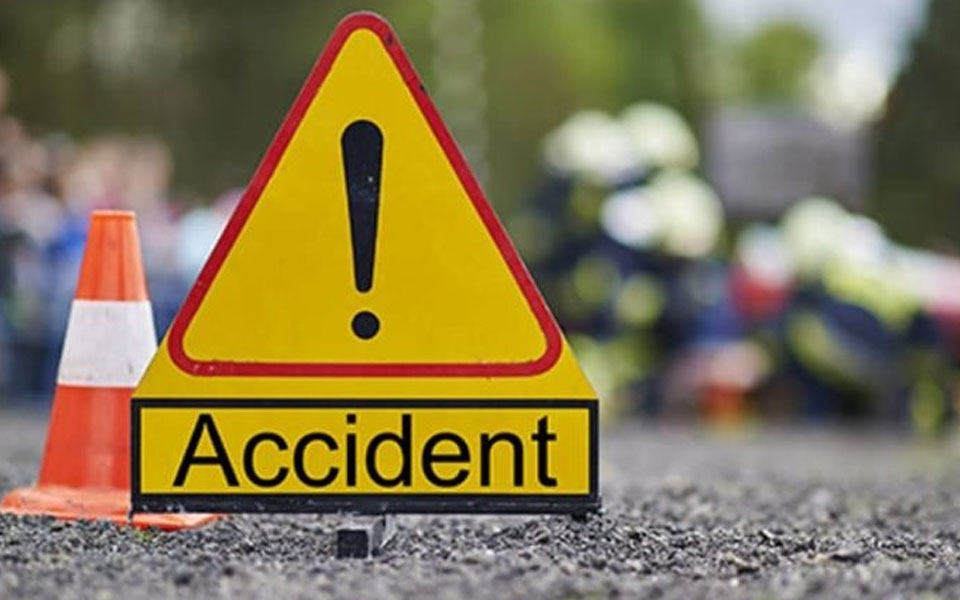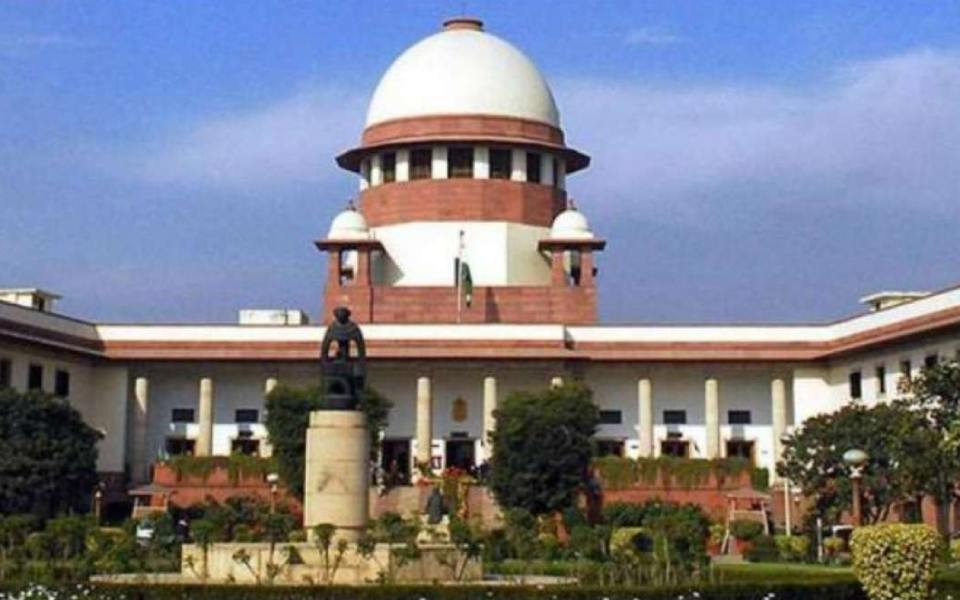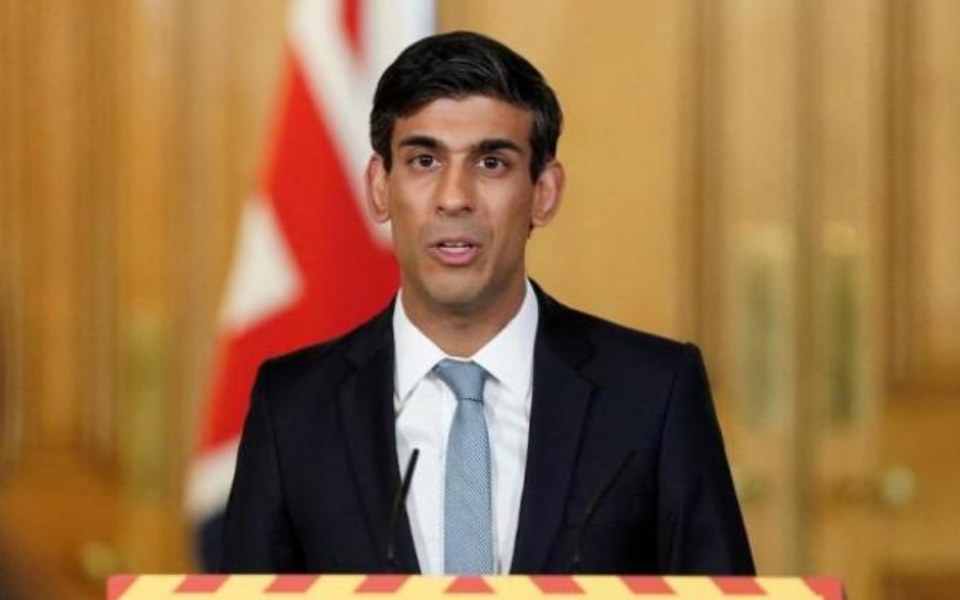Dubai : An Indian woman died when her husband lost control of his vehicle and rammed into a truck while going to a church here, according to a media report on Sunday.
Her husband, who was critically injured in the accident, was admitted to Dubai's Rashid Hospital, it said.
The couple, Reeja Varghese and her husband Varghese Koshy - hailing from Tiruvalla town in Kerala, was going to attend service at St Gregorios Indian Orthodox Church's Dubai cathedral when the accident happened on Friday, the Khaleej Times reported.
According to police, Varghese lost control of his vehicle and rammed it into a truck.
Reeja, who died on the spot, and Varghese were extricated from the mangled remains of the vehicle after cutting it with the help of hydraulic cutters, they said.
The body will be handed over to family after completion of legal and administrative procedures, the police said.
Let the Truth be known. If you read VB and like VB, please be a VB Supporter and Help us deliver the Truth to one and all.
New Delhi, Apr 16: The Supreme Court on Tuesday asked various state governments to apprise it in six weeks on the action taken in incidents of mob lynching and cow vigilantism.
A bench of Justices BR Gavai, Aravind Kumar and Sandeep Mehta posted for hearing after six weeks a plea filed by a women's organisation seeking directions to states to take immediate action in consonance with a 2018 verdict of the apex court to effectively deal with incidents of lynching and mob violence against Muslims by cow vigilantes.
"We find that most of the states have not filed their reply affidavits to the writ petition giving instances of mob lynching. It was expected of the states to at least respond to what action has been taken in such cases. We grant six weeks' time to the states who have not filed their replies and also give details of steps taken by them in such cases," the bench ordered.
The top court was hearing a plea filed by the National Federation of Indian Women (NFIW), an organisation linked to the Communist Party of India in which notices were issued last year to the Centre and the DGPs of Maharashtra, Orissa, Rajasthan, Bihar, Madhya Pradesh and Haryana seeking their responses to the plea.
During the hearing, advocate Nizam Pasha, appearing for the petitioner organisation, said that in Madhya Pradesh there was an incident of alleged mob-lynching but the FIR was registered for cow slaughter against the victims.
Pasha submitted, "If the state is to deny the incident of mob lynching, then how can 2018 verdict in Tehseen Poonawalla case will be followed."
In the Poonawalla case, the top court has issued a slew of directions to States to check incidents of cow vigilantism and mob lynching.
The bench questioned the counsel appearing for the Madhya Pradesh government, as how FIR for cow slaughter was registered without chemical analysis of the meat and why no FIR was registered against those involved in the scuffle.
"Are you trying to save someone? How can you register FIR for cow slaughter without even chemical analysis," the bench told the counsel for Madhya Pradesh and asked him to give details of the incident.
Pasha pointed out that same thing happened in Haryana where a case for transporting beef was registered but not mob lynching.
"The states are denying that there were any incident of mob lynching and FIRs are being registered for cow slaughter against the victims. Only two states Madhya Pradesh and Haryana have filed their affidavit on incidents pointed out in the writ petition and interlocutory applications but other states have not filed any affidavit," he submitted.
The bench then passed the order.
Justice Kumar told Pasha that incidents mentioned in the petitions should not be selectively chosen from particular states but all incidents should be mentioned.
Senior advocate Archana Pathak Dave, appearing for one of the states, said that in the writ petition there is specific averment made that Muslim men are mob lynched and there is no mention of mob lynching of people of other religion.
"The relief sought cannot be religion specific," she said.
Pasha submitted this is the reality of the society and incidents against particular communities can be brought before the court.
The bench asked Dave to observe restraint in her submissions, and said, "Let's not go into the incidents on the basis of religion. We should focus on the larger cause."
The top court posted the matter for hearing after summer vacation and ordered that states should file their replies on the steps take to check mob lynching.
On July 28, last year, the top court agreed to hear a plea which sought urgent intervention of the apex court in view of the "alarming" rise in cases of lynching and mob violence targeting Muslims despite clear guidelines and directions issued by the top court in 2018 with regard to cow vigilantes.
"In view of the alarming rise in cases of lynching and mob violence against the Muslim community, the petitioner is seeking a writ in the nature of mandamus to the concerned State authorities to take immediate action in terms of the findings and directions of this court in Tehseen Poonawalla so as to effectively contain and deal with the same," the plea said.
In its 2018 verdict, the top court had held the states have the principal obligation to see to it that vigilantism, be it cow vigilantism or any other vigilantism of any perception, does not take place, and issued guidelines to be adopted by the authorities to deal with such incidents.
The PIL referred to several incidents of mob violence, the most recent being the killing of a 55-year-old truck driver named Jaharuddin on June 28, 2023 in Bihar's Saran district on suspicion of carrying beef. It said the killing happened on the heels of two such incidents in Maharashtra's Nashik.
The PIL sought direction to the Centre to provide a minimum uniform amount to the victims of such violence in addition to the compensation determined by the respective states after considering factors like the nature of bodily injury, psychological injury and loss of earning, including loss of employment opportunities, and legal and medical expenses.





